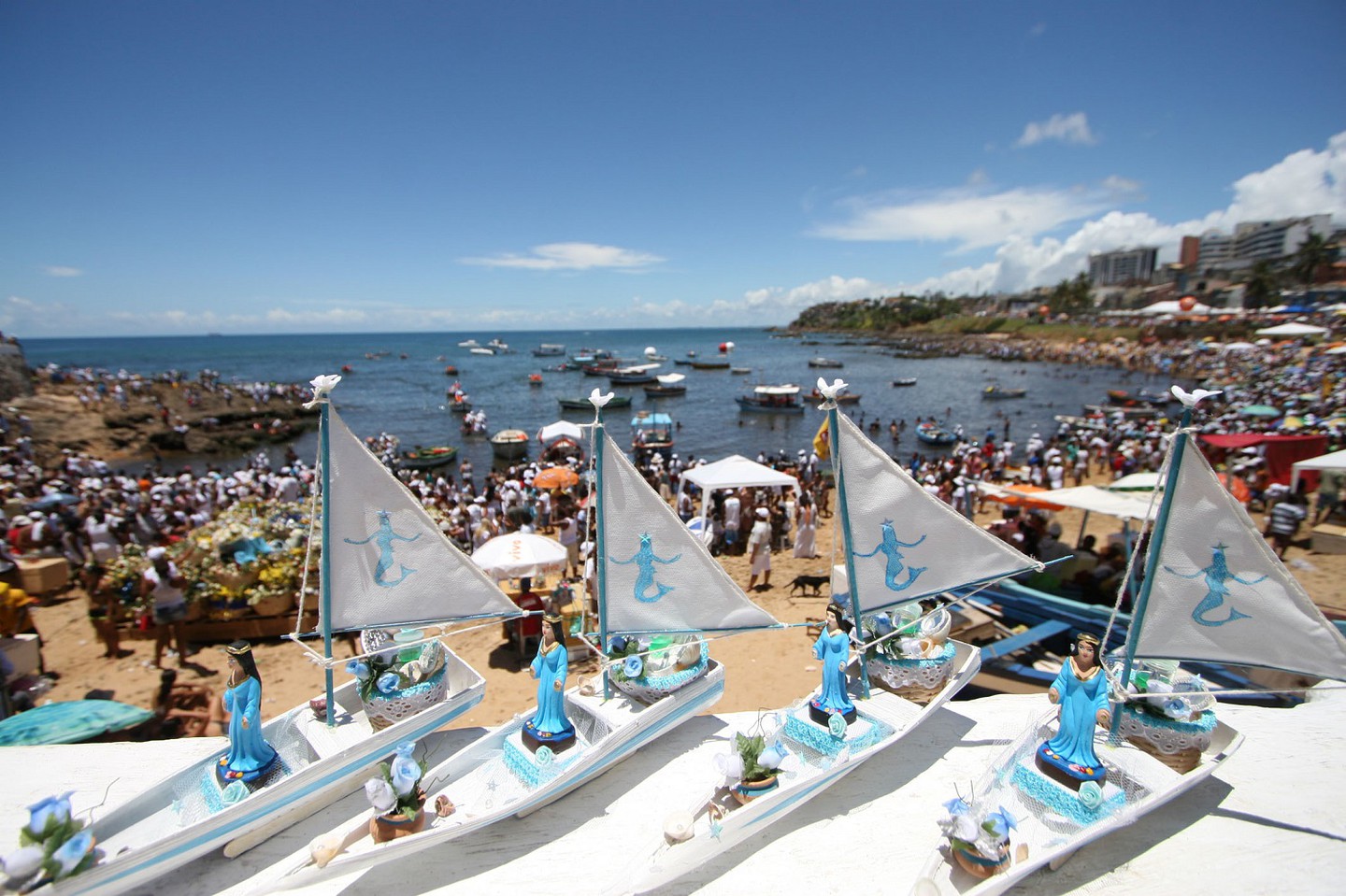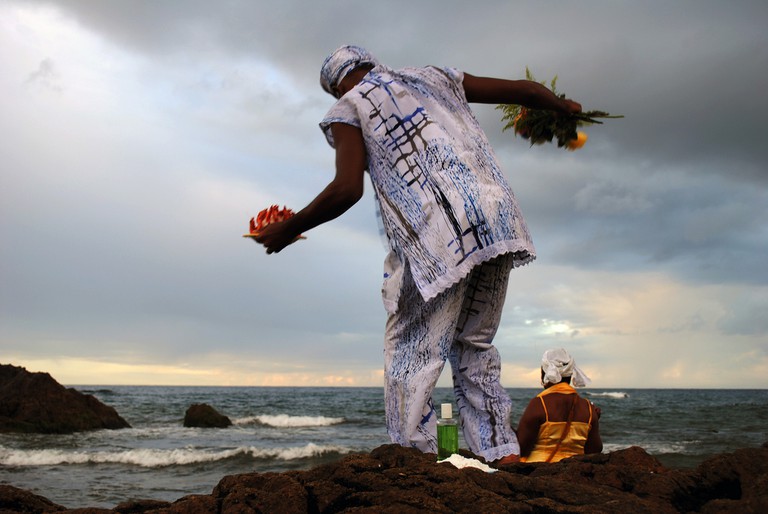Every New Year’s Eve in Rio de Janeiro, millions of celebrants in Brazil mark festivities in the name of the sea goddess Iemanja. But not many people know that she was taken to the New World by Yoruba slaves from Africa.
The celebrations on December 31 in Rio reportedly took in almost 3 million people, who danced, sang and chanted into the first day of 2020.
CGTN America reported that the celebration came at a whopping cost of $2.5 million to the state. But all of that money may be the right price for what the people came for.
Lucrecia Franco wrote,”…like many other Brazilian takes on celebrations, New Year’s Eve draws from its African roots. Drums, rituals of Candomblé and Umbanda, the two main Afro Brazilian religions.”
For worshippers in Afro-Brazilian religions, it is only fair that the water goddess Yemoja, or Iemanja, as they know it, is paid homage by the people in the country with the world’s famous beach culture.
Yemoja is a major deity or orisha, in the Yoruba pantheon of superbeings. She is the goddess of the sea and other waters.

But Yemoja is a little more than that. She is a mother spirit which means that in the cosmology of the Yoruba, she is the primordial bringer of life.
What follows in the same logic is the conceptualization of Yemoja as the patron saints of women, motherhood and femininity. It is Yemoja that women pray to in order to have children, or the ability to care for them and the family.
In Yoruba, Yemoja etymologically approximates to “mother of fish children”, an eponym of a sort that also connects her utility as the patron saint of the fisherfolk.
It is in this role as the goddess of the seas that she is most noted in the Americas. And in Brazil where Yemoja has become a fixture thanks to the Candomblé and Umbanda, all the festivities in her honor are as a result of what she is thought to have done for the seas and seafarers.
In Salvador where the Candomblé is very popular, Iemanja is celebrated on February 2. But with the exception of the number of celebrants, what happens in Salvador is no different from Rio.
During the festivities, Iemanja is offered flowers at the seashore in the morning and her followers watch while the water carries away the flowers. Incantations are said, among which are prayers of thanksgiving and safekeeping.
In the night, music and dancing ensue all night long. Among the followers in Candomblé where Iemanja’s celebrations are a little more sacred than fun, other activities accompany.
People can make shrines out of sea sand to Iemanja on the day of celebrations. Apart from flowers, beauty products such as perfume, lipstick, jewelry may also be consecrated to the goddess.

Food is also offered but it has to be the color of white. Statuettes of the goddess atop replica boats should also be available at the beach for worshippers.
The worshippers believe that if one’s gift is washed up on the shore, Iemanja has rejected it. But she has accepted your offering if the waters take it away.










